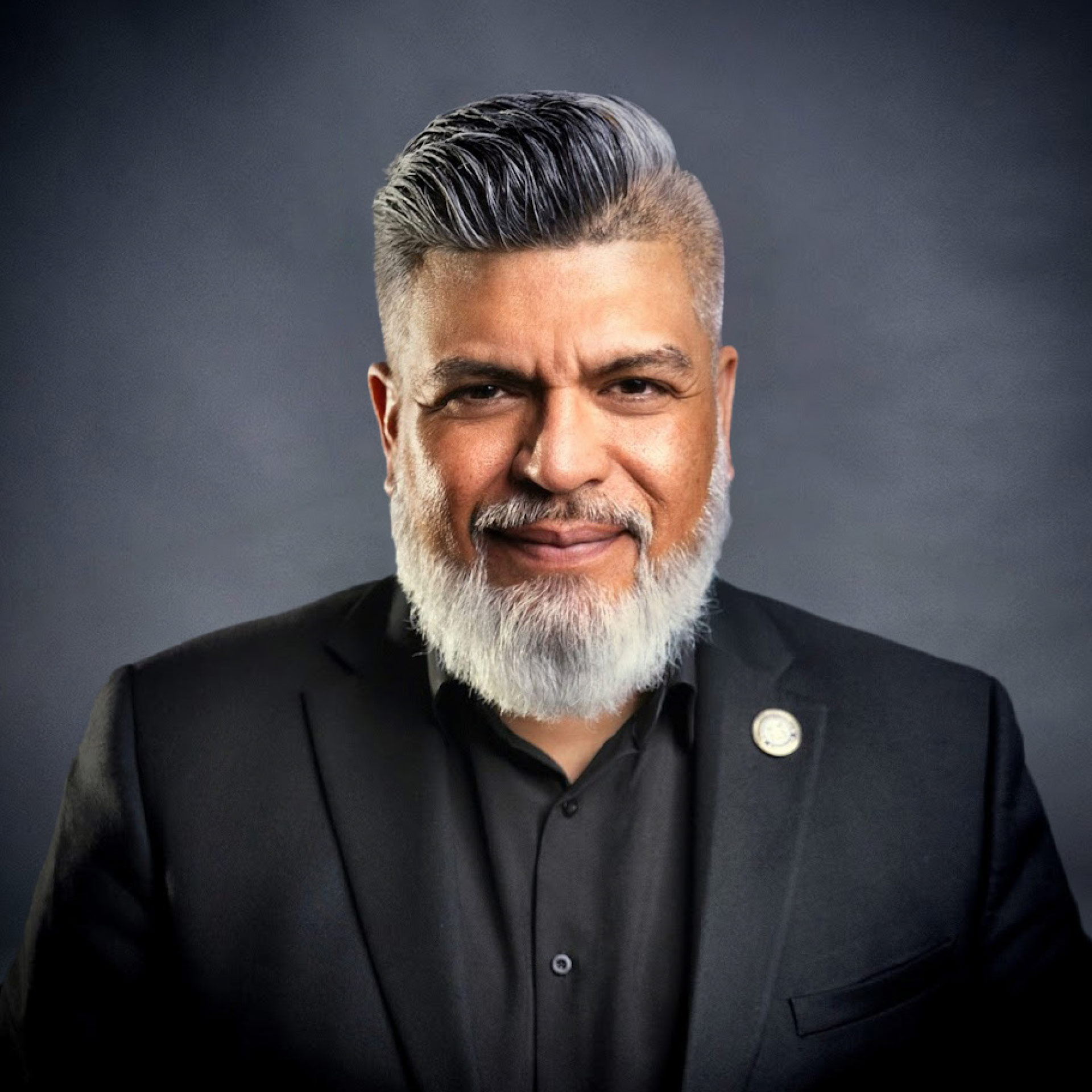
Somewhere along the line, we started thinking that wearing the badge meant surrendering our identity. That if you weren’t “always on,” you weren’t dedicated enough. That being a cop wasn’t just a job — it was your personality, your identity, your entire damn life. I know that mindset well. I lived it. Breathed it. Believed it. I once drank from that Kool-Aid, proudly thinking I was one of the few chosen to hunt the evil the rest of the world pretended didn’t exist. 24/7. No breaks. No excuses.
But let me tell you something I’ve learned the hard way: That mindset will chew you up and spit out your soul if you’re not careful.
Officers who intentionally segment their work and personal life report significantly lower PTSD rates.
The weight we carry
The weight of the job doesn’t clock out just because you do. Hypervigilance, moral injury, chronic stress — these are occupational hazards, not signs of weakness. We prepare for danger, train for it, talk about it, but rarely do we talk about what that preparation steals from us over time: our attention span, our joy, our ability to just be.
And yet, we normalize it: watching only cop shows, hanging out only with other cops, reading only tactical books, talking shop even at family barbecues. We live in an echo chamber of sirens, callouts and war stories. And for what? To prove how “committed” we are?
We grind, we over-identify and we silence the voice inside that’s whispering: “You’re more than this.”
The real question
Here’s a wake-up call: When was the last time you did something that didn’t have policing written all over it? When was the last time you let yourself be human, not just a cop?
I remember a powerful moment early in my career, during my initial training. I was all in — gung-ho, high-speed, fully submerged in the cop identity. That’s when a seasoned instructor and training visionary, Chief (Ret.) Juan Gonzalez, pulled me aside. He said, “I admire your drive. Keep it up. But don’t take this job too seriously, because sometimes this job won’t reciprocate — and that kind of feels like a heartbreaker if you’re not careful.”
That one hit me hard. And it’s been echoing ever since.
The resilience dividend
Here’s the deal: when officers fully disconnect after a shift — mind, body and soul — they don’t grow weak. They grow sharper.
Studies rooted in boundary theory and occupational stress confirm the impact: officers who intentionally segment their work and personal life report significantly lower PTSD rates, reduced burnout and heightened job satisfaction (Andersen et al., 2015; Arble and Arnetz, 2017). When you show up whole — grounded, emotionally present, well-rested — you bring more to every call and every interaction.
Further, research shows that police who maintain psychological and physical boundaries experience better partner trust, stronger community relationships and improved stress resilience (Swatt, Gibson and Piquero, 2007). This isn’t fluff — it’s proven.
Neurological studies from the University of Buffalo’s Department of Psychiatry reveal that sustained hypervigilance without rest diminishes executive function, impairs working memory and increases cortisol-related inflammation in first responders (Violanti et al., 2018). Translation? You’re not just mentally tired — you’re physiologically less capable.
Moreover, disconnecting improves emotional regulation, which directly impacts your ability to de-escalate tense encounters. You’re less likely to overreact when your mind has practiced calm.
Officers who integrate proactive downtime report fewer on-the-job use-of-force incidents and improved interpersonal relationships at home and at work (Papazoglou and Andersen, 2014). That’s not just science — that’s strategy.
And make no mistake: officers who never mentally “clock out” are at high risk of emotional exhaustion, impaired decision-making and relationship strain.
That’s why in your training and mentorship, prioritizing downtime isn’t optional — it’s tactical.
“Resilience is not built in crisis — it’s built in the moments of rest between them” (Zarzoza, Not Today, 2025).
The grit behind the disconnect
As Dr. Kevin Gilmartin explains in Emotional Survival for Law Enforcement (2002), officers often enter the job driven by idealism and a desire to make a difference — but over time, hypervigilance and emotional withdrawal become the default. He calls it the “biological roller coaster” — that high-alert state on duty followed by emotional flatlining at home. Sound familiar?
The result? Officers slowly detach from everything outside the job. Hobbies fade. Relationships strain. Cynicism takes root. And before you know it, the uniform isn’t just something you wear — it’s all you are.
That’s not dedication. That’s erosion. And no amount of overtime pay makes up for losing yourself piece by piece.
Life beyond the uniform
This isn’t another “get a hobby” PSA. This is a survival plan. I’m talking about picking up that guitar again, taking that cooking class, watching a comedy with your spouse, reading something that has zero to do with the job. Reclaiming your humanity, piece by piece.
Because when we forget who we are outside the badge, we become hollow inside of it.
Your emotional survival depends on diversifying your identity. Don’t be just a cop. Be a parent, a partner, a dog trainer, a runner, a reader. Be someone who can talk about something besides callouts and court dates.
Start small, start now
You don’t need a month-long vacation in Bali. You need 10 minutes of stillness, one uninterrupted meal with your family, one day off without checking your work phone. Even short, deliberate pauses allow your nervous system to reset and your brain to rewire for balance.
Your shift may end, but recovery doesn’t happen by accident. It happens on purpose.
So here’s your challenge
Live a life so full, so grounded and so unapologetically you that when the shift ends and you finally say “10-42,” it actually means something. Not just a code, not just a check-out, but a declaration: I’m off the clock. I’m still alive. And I’m not just surviving this job — I’m outliving it.
10-42. Like you mean it.
References
Andersen, J.P., Papazoglou, K., and Koskelainen, M. (2015). Coping strategies and PTSD symptoms in police officers. Journal of Police and Criminal Psychology, 30(1), 38–49.
Arble, E., and Arnetz, B.B. (2017). A model of first-responder coping: An approach/avoidance bifurcation. Stress and Health, 33(3), 223–232.
Gilmartin, K.M. (2002). Emotional Survival for Law Enforcement: A Guide for Officers and Their Families. E-S Press.
Papazoglou, K., and Andersen, J.P. (2014). A guide to wellness and resilience in law enforcement. FBI Law Enforcement Bulletin.
Swatt, M.L., Gibson, C.L., and Piquero, A.R. (2007). Exploring the utility of general strain theory in explaining problematic alcohol consumption by police officers. Journal of Criminal Justice, 35(6), 596–611.
Violanti, J.M., Charles, L.E., McCanlies, E., Hartley, T.A., Baughman, P., Andrew, M.E., and Burchfiel, C.M. (2018). Police stressors and health: A state-of-the-art review. Policing: An International Journal, 41(4), 431–443.
Zarzoza, A. (2024). Not Today: 260 Empowering Affirmations for Law Enforcement. Palmetto Publishing.
As seen in the September 2025 issue of American Police Beat magazine.
Don’t miss out on another issue today! Click below:






